Starting from scratch, building business and raising African cycling – Doug Ryder on Q36.5
Team Principal talks about World Tour ambitions, improving the team and his plans for African development
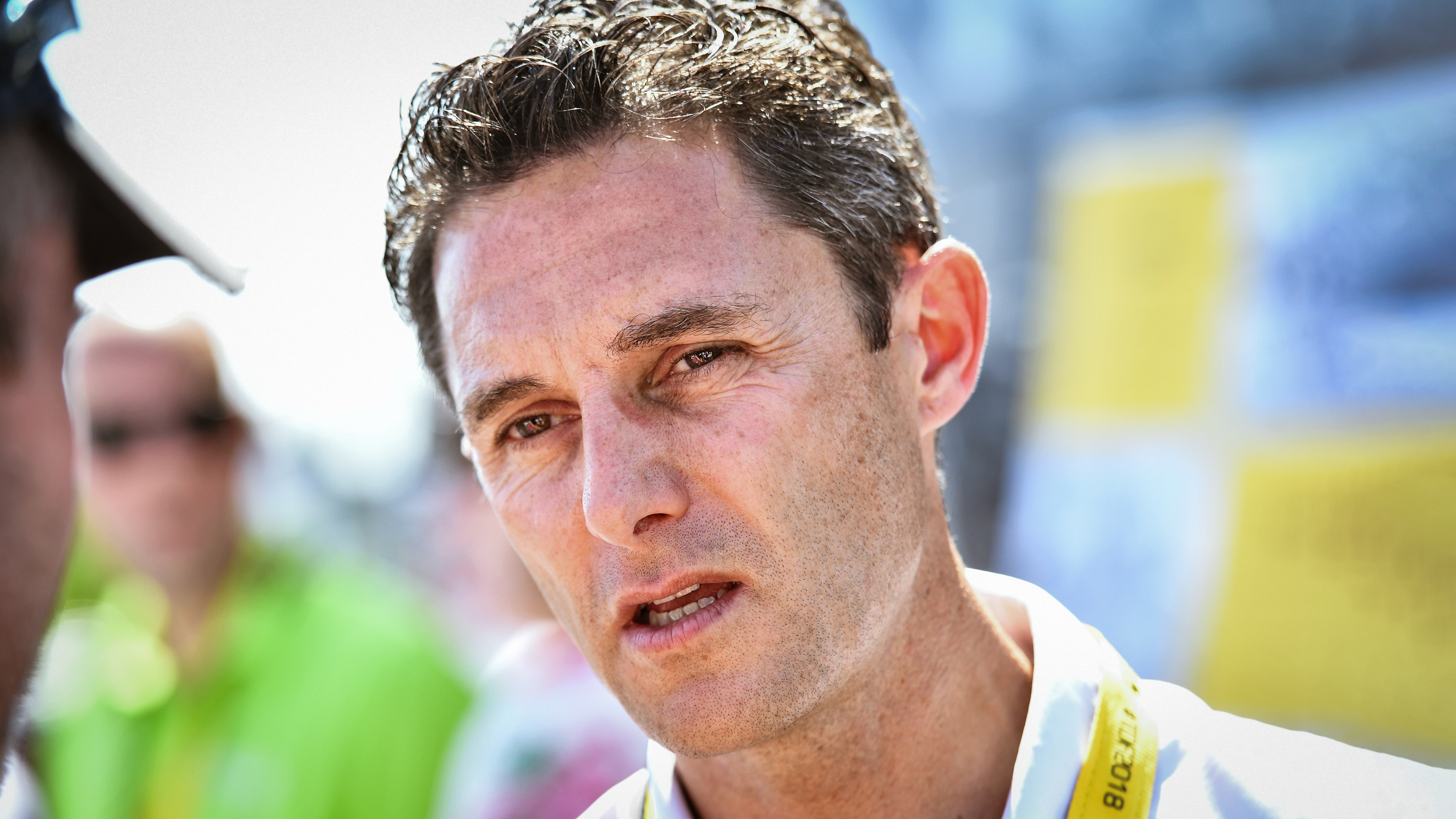

About this time last year, Doug Ryder received the green light to start building his new team. He didn’t have long; the money came together just a few months before the start of the new season.
Before any money came in, what the South African already had in the bank was more than a decade of experience in team management. Team Qhubeka NextHash, as it was known in its final year, folded at the end of 2021.
Ryder has carried learnings from that time into his new project. Coming to the end of Q36.5 Pro Cycling’s first season, he was in a reflective mood when he spoke to Cyclingnews.
“We want to have an authentic team and tell an authentic story,” Ryder told Cyclingnews at the Tour of Britain in front of the team’s brand-new bus. It’s a bus that he’s proud of because it’s a practical outworking of the values he is trying to instill at Q36.5.
“It's got solar panels on the roof, so it's all planet-conscious. It’s part of our ‘Racing the Future’ mantra; we talk about being kind to the world that we live in and to try and keep our team as sustainable as possible,” Ryder said.
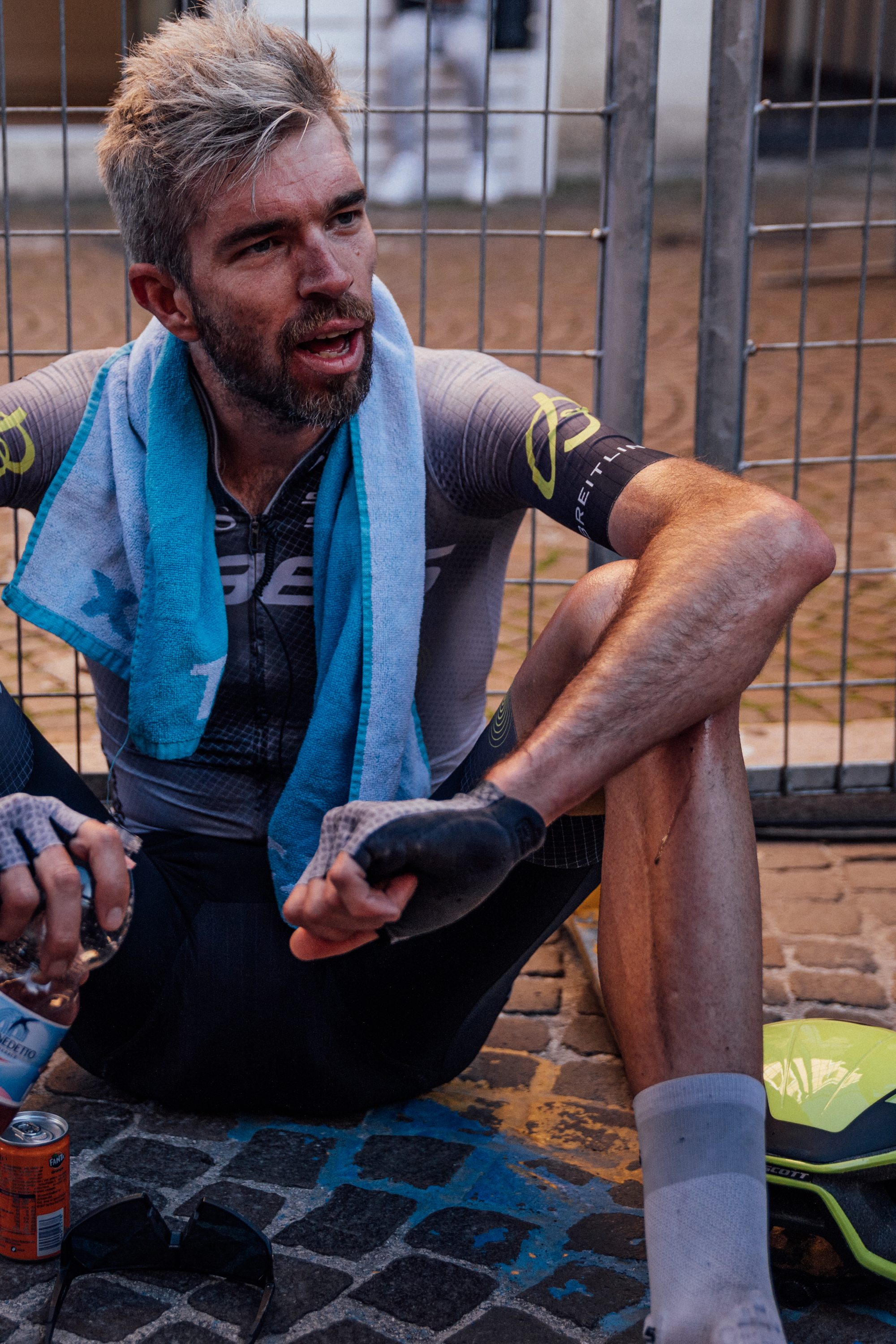
Launching a new professional cycling team is not a straightforward task; there are so many elements to bring together. Thinking back on their first year, Ryder believes that the rushed nature of the team’s compilation at the end of 2022 bled into their performances this year.
The latest race content, interviews, features, reviews and expert buying guides, direct to your inbox!
“We only put the team together in September. We had our backs against the wall a little bit.… The complexity of creating a team in three months, in there showed our weaknesses and our lack of preparation potentially, which is understandable.
“I think we had all these high expectations, and we brought these amazing people together, but what you forget fairly quickly is that you bring 24 riders together who’ve never raced together before. You know, most teams rotate 25 to 30% a year, and they keep 70% of their core. We started with 100%.”
“Then we got invited to some of the biggest races in the world, big monuments and classics. So we got thrown in the deep end, and all of a sudden, you’ve got to piece a puzzle together, which was more complicated than we anticipated, actually.
“I'm really happy with where we are. Of course, we would have loved to have a little bit more performance and some more race victories, but we came so close so many times. But I mean, other than that, am I happy? I am happy, and our team looks good. It's on the road; it's getting some nice invitations. We’re on the road to rise up again. But yeah, we would have hoped for a bit more success, I guess.”
Aiming for the WorldTour
From the outset, Ryder proclaimed high ambitions for the new team, publically stating an aim to reach the World Tour in 2026. The battle for WorldTour promotion is fiercely competitive, with several longer-established ProTeams harbouring the same goals and current World Tour squads desperate to stay there.
Coming to the end of this year, Q36.5 are almost 6,000 points off the required 18th place in the UCI team rankings. They already have a steep mountain to climb with two more seasons to go.
While not entirely defeatist on the strategy, Ryder did recognise that the team has been some way off where it needs to be in order to be promoted and is open to different pathways.
“We needed to start a little bit better than we have. The relegated teams, Israel Premier Tech and Lotto-Dstny are really strong. They still are WorldTour teams if you think about it, in terms of their structures and the way they run. So that's challenging a little bit. They have a head start on most Pro Tour teams. So yeah, look, it's a big ask to get there.”
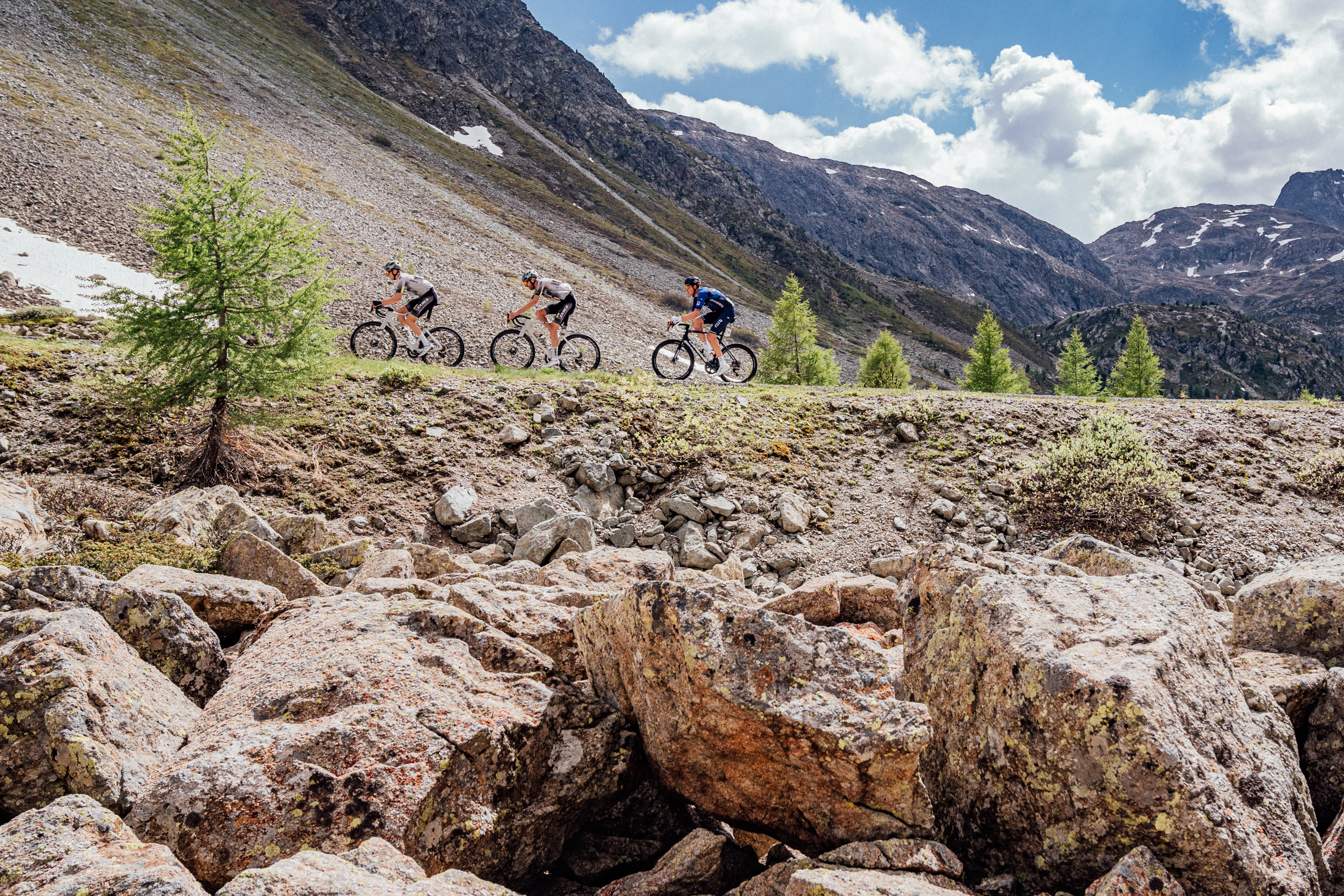
Looking back at the downfall of Team Qhubeka, their step up to the WorldTour coincided with the team’s sustainability issues. Ryder was unable to secure the long-term increase in funding needed to remain at the top level.
“It just shows that even if you're in the World Tour, it doesn't guarantee you funding. We had a guaranteed entry into Tour de France, and we couldn't put a team together to ride it.”
Ryder is now much more confident in the commercial partners he has on board this time around. He’s focussing effort on creating value for his sponsors, something which he believes will grow if the team does eventually make it to the World Tour.
“What it does do [being in the World Tour], of course, with your partners is you can create hospitality environments. You can bring people together, create those money-can't-buy experiences because you’ve got the guaranteed programme…You can leverage that if you've got amazing partners. I mean now with Breitling and UBS, Scott, Mercedes-Benz, Q36.5; these amazing brands that we have, these organisations really want to get involved.”
Improvements
As 2023 has gone on, the team has improved steadily. Ryder realised that even just in the one year he was absent from the sport, cycling has moved on. The team needed to be more progressive.
“Cycling has become so hard. The strong teams are so strong that you’ve got to race a little bit differently, you’ve got to believe in yourself, you’ve got to shake the tree a little bit, and we were a little bit too traditional, I think, and struggled a little bit and so we have to just do things slightly differently. But now the riders are believing in themselves.”
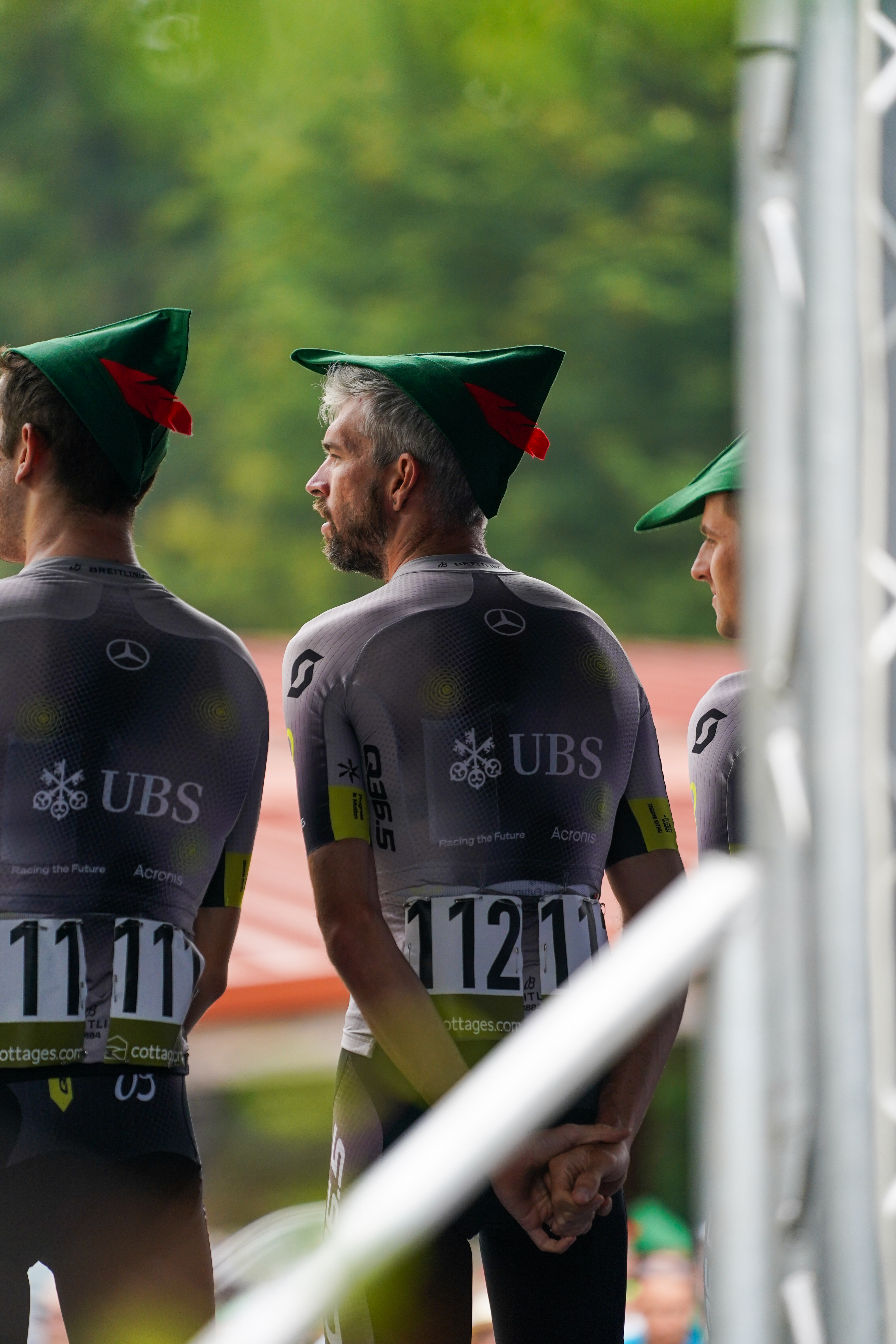
That belief and shift in tactics shunted the team into an upward trajectory. Ryder praised Damien Howson in particular, who has transformed himself from a loyal mountain domestique into a leader, evidenced by his third overall at the Tour of Britain and fourth at the Vuelta a Burgos - where he matched Primož Roglič up the steep ascent of Picón Blanco. Italians Walter Calzoni and Matteo Moschetti, along with British climber Mark Donovan, have been other stand-out riders in the team as the season has worn on.
Ryder is aware that Q36.5 must continue to develop, and he’s already planning several practical steps to implement for 2024. The team will increase the number of training camps throughout the year, helping the riders to build more of an understanding with each other and to learn from each other.
The team has also announced several strong signings for the new season. The likes of Frederik Frison, Jannik Steimle and Giacomo Nizzolo are experienced and talented riders who will help the team’s UCI points mission. Ryder says that he’s been able to attract this talent because he can offer them something the big teams cannot: opportunity.
“We want to be able to be a team that attracts the best talent, where riders don't necessarily want to go and be someone else’s bottle-boy on a big team…We want riders to leave a legacy. What do you want to tell your kids about one day, you know? You want to be the bottle-boy to someone or the lead-out man for someone? Or do you want to create your own space and your own day in the sun?”
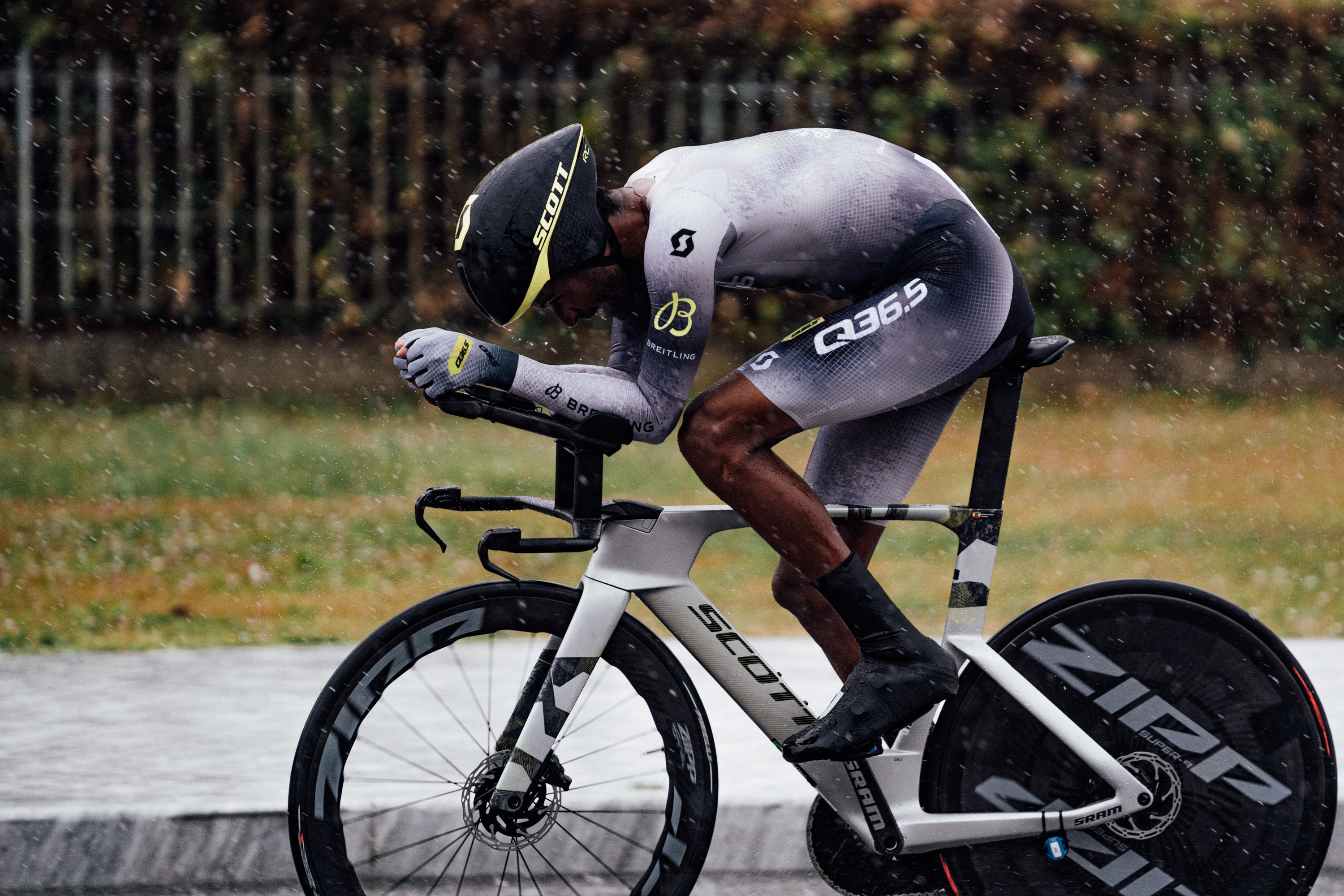
Plans for African Development
There are new signings off the bike too, including Sports Director Jens Zemke, who momentarily interrupted Ryder at the Tour of Britain to meet his future colleagues, hopping over from the adjacent Bora-Hansgrohe bus. “It’s sort of my old team,” Zemke replies when asked if he’s going to meet his new team. The German had been part of Ryder’s Qhubeka team for many years.
At Qhubeka, Zemke and Ryder worked together to develop African riders, a major focus of that team. “If you look at the African riders in the pro tour today, 90% came through our system,” Ryder says. “Other than Biniam Girmay, but I mean he was 13 when Daniel [Teklehaimanot] wore the [Polka Dot] jersey in the Tour de France, so it was his eye-opener and created that drive.”
When announcing the 24 riders signed to Q36.5 before this season, only one African rider was among them, young Ethiopian climber Negasi Abreha.
Ryder is keen to assert that African development is very much on the agenda at Q36.5, but he’s learned from mistakes of the past. Giving Africans opportunities at the expense of the performance of the team is not something he’s now willing to do due to how the sport has transformed in the last few years.
“We’re not a jobs-for-pals team, you know? The sport has become too hard. It's a business now. It's become too hard to have riders from different countries in the team just to ride around in this world of cycling, as we did in the beginning when it was unique and it was different, and points didn't mean anything. Now your ranking [matters], which is quite tough for a team that wants to make a difference and create opportunities for an emerging market.”
In Ryder’s year of hiatus in 2022, he kept his Continental-level development team rolling, giving opportunities to six Africans, including Abreha. His plan for developing African riders is to identify young talent from across the continent, sign them to the Continental team for them to build experience in European racing, and the best will step up to the professional squad. However, no new African riders are currently part of the plan for the ProTeam in 2024.
“It’s still a big focus for us…especially with the World Championships in 2025…Africa is still my passion; my heart’s there, of course. And we will still support African cycling when riders are good enough to be on the team.”
In 2025, the eyes of the cycling world will be on Africa as the World Championships head to the roads of Kigali. The event has recently been rocked by the arrests of the Rwanda Cycling Federation’s two top men on suspicion of favouritism, forgery, and falsification. Around the same time, the organiser for the Worlds, who in addition puts together February’s Tour du Rwanda, also resigned.
Ryder is concerned by these events but hopes that it will bring about change for the better.
“I was super concerned reading that because, obviously, I’m not super close to it, but that is not good.”
“Africa has such potential, and yet people sometimes don't want to go there because they are just painted with the brush that it's corrupt. Of course, there are pockets of that, but it's not consistent across the continent. It's a big continent of over a billion people, and there's a lot of really good people there. So sometimes we it gets a bit of a bad rap, but in this particular case, there have clearly been some challenges, and that's sad.”
“So hopefully, now with this change, there’s even a bigger focus, and then it will be spectacular because Africa is beautiful. Its people are beautiful; its landscape is beautiful. The riders that end up at that World Championships will speak about it for the rest of their lives. It will be something unique and different and really special. I'm sure they'll work it out, and it will be fine.”

Dan is a freelance cycling journalist and has written for Cyclingnews since 2023 alongside other work with Cycling Weekly, Rouleur and The Herald Scotland. Dan focuses much of his work on professional cycling beyond its traditional European heartlands and writes a regular Substack called Global Peloton.